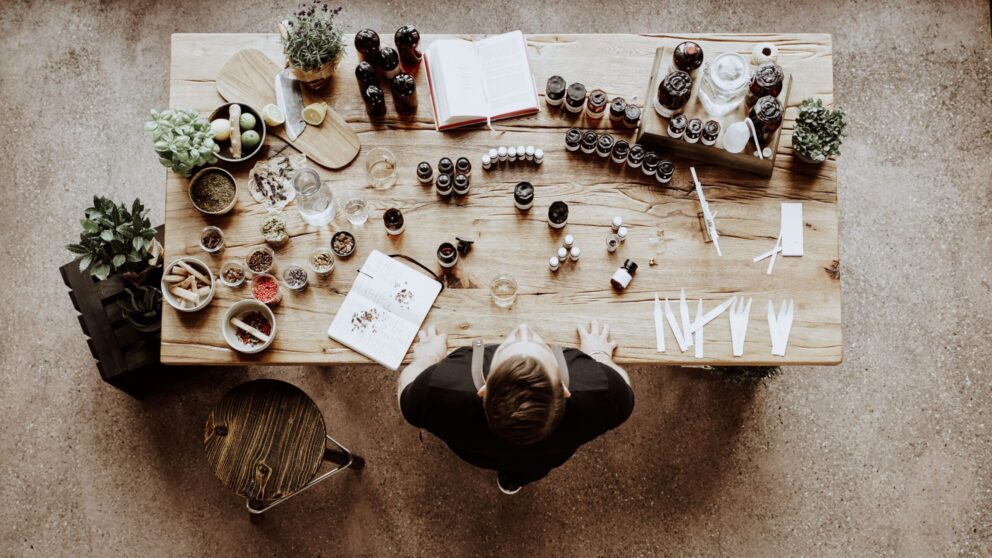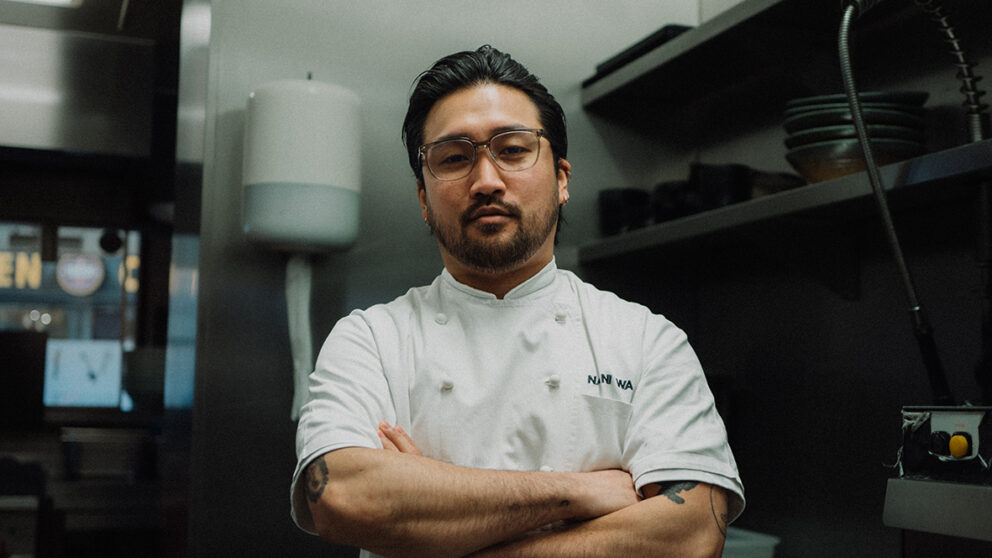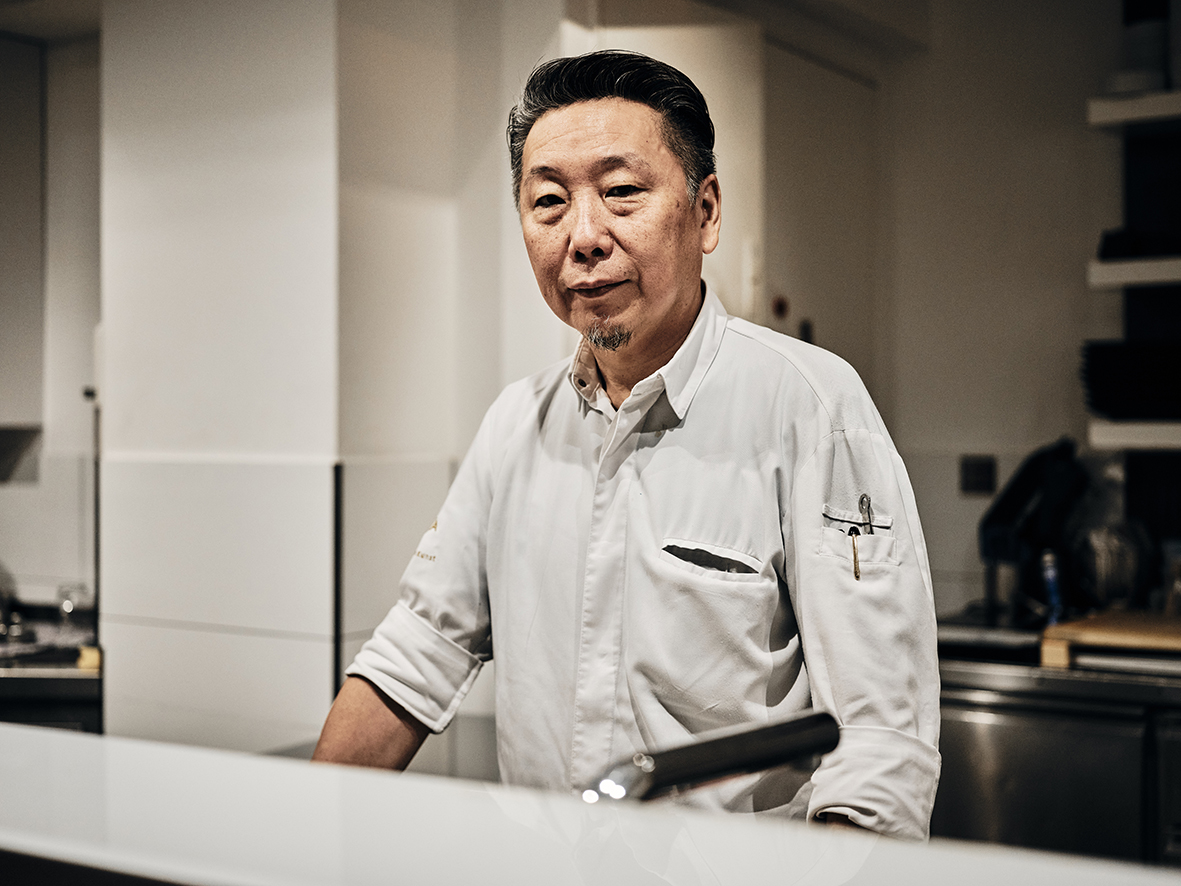
Nagaya in Düsseldorf - Interview with star chef Yoshizumi Nagaya
"I swore to myself that if I ever returned to my home country, it would only be with a Michelin star in my luggage."
The Japanese restaurants Nagaya and Yoshi by Nagaya in Düsseldorf have both been awarded one Michelin star each. This makes Yoshizumi Nagaya the only Japanese chef in Germany to run two Michelin-starred restaurants. In Japan, he would be called a grandmaster. Just a few steps apart, the restaurants surprise diners with two different culinary concepts. While Nagaya on Klosterstraße promotes an unusual combination of traditional Japanese purism and European haute cuisine, the exceptional restaurateur has dedicated himself to classic Kaiseiki cuisine1) in the restaurant Yoshi by Nagaya, which opened on Kreuzstraße in 2016. Yoshizumi Nagaya learned his craft from Toshiro Kandagawa in Osaka, a master of traditional Japanese cuisine, and from Takada Hassho in Gifu, an advocate of innovative cuisine. We met Yoshizumi Nagaya in Little Tokyo for an interview.

You are the only Japanese chef in Germany to have been awarded one star each for your two restaurants. What does that mean to you?
To be honest, I don't think about it at all in my day-to-day business. We are constantly working to satisfy the wishes of our guests, to make them happy in the long term. That's what we think about.
What role does the Düsseldorf location play in your work?
A big one. There are probably more Japanese products here than anywhere else in Germany. And the product is clearly at the forefront of my cooking.
How long have you been living in Germany?
We came to Germany in 2000 - at my wife's request. She was curious and wanted to get to know life in Europe. The Japanese kindergarten and the Japanese school were decisive factors in our decision to move to Düsseldorf.
Were you already dreaming of your own restaurant back then?
No, not at first. I was employed in Japan and when we came here, I initially worked as head chef at the Edo restaurant in Oberkassel. Unfortunately, the restaurant closed just six months later. I then went to Milan for a year to work at Nobu, a very well-known restaurant with around 40 branches worldwide. But then I wanted to return to my family in Düsseldorf and decided to start my own business.
Did you have a concrete vision of Nagaya in Düsseldorf?
Well, my master and colleagues had once advised me not to go to Europe. So there was no way I wanted to return to Japan without having a success to show for it. At that time, there was no Michelin Guide in Japan and therefore no stars. I swore to myself that if I ever returned to my home country, it would only be with a Michelin star in my luggage.


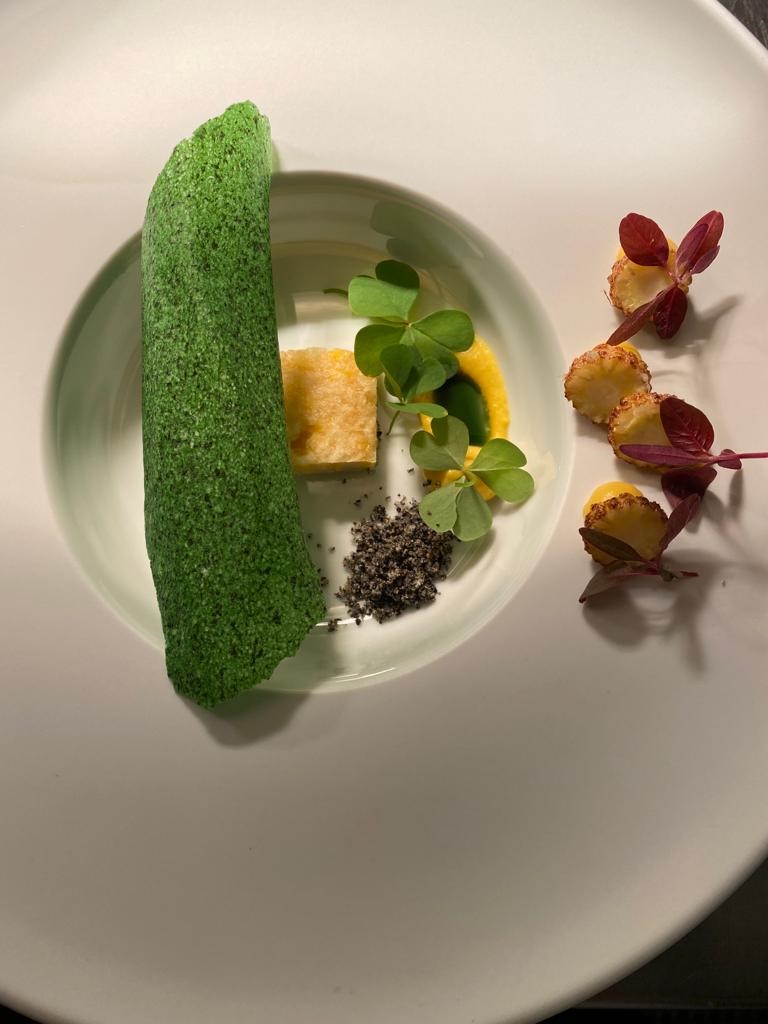



Could you imagine living and working in another German city ?
No, although I also like Hamburg, Düsseldorf is something very special for me. And that's not just because I can find all the products I need for my kitchen here. Düsseldorf is also similar to my home town of Gifu in many ways - it's not big and it's not small either. So I immediately felt at home.
How do you feel about the cohesion of the Japanese community in Düsseldorf?
The relationship between the restaurateurs is collegial, they stick together. There is a really nice gastronomic culture here.
What sets you apart from other Japanese chefs?
My cuisine is not primarily aimed at Japanese guests. You could almost say that it's not really made for Japanese people, but for Düsseldorfers. And Europeans are more likely to come to us. We offer Japanese culture with German influences. I learned in the Kaiseiki kitchen. My aim is to develop it further, preserve its traditions and at the same time incorporate modern elements.
Where do you like to eat out?
I like to go to Kushi-Tei, Takeichi or Yabase. If I'm in the mood for French haute cuisine, I go to Le Flair. Eating at Schiffchen is also an experience; Jean-Claude Bourgeuil, a great master of his trade, cooks there.
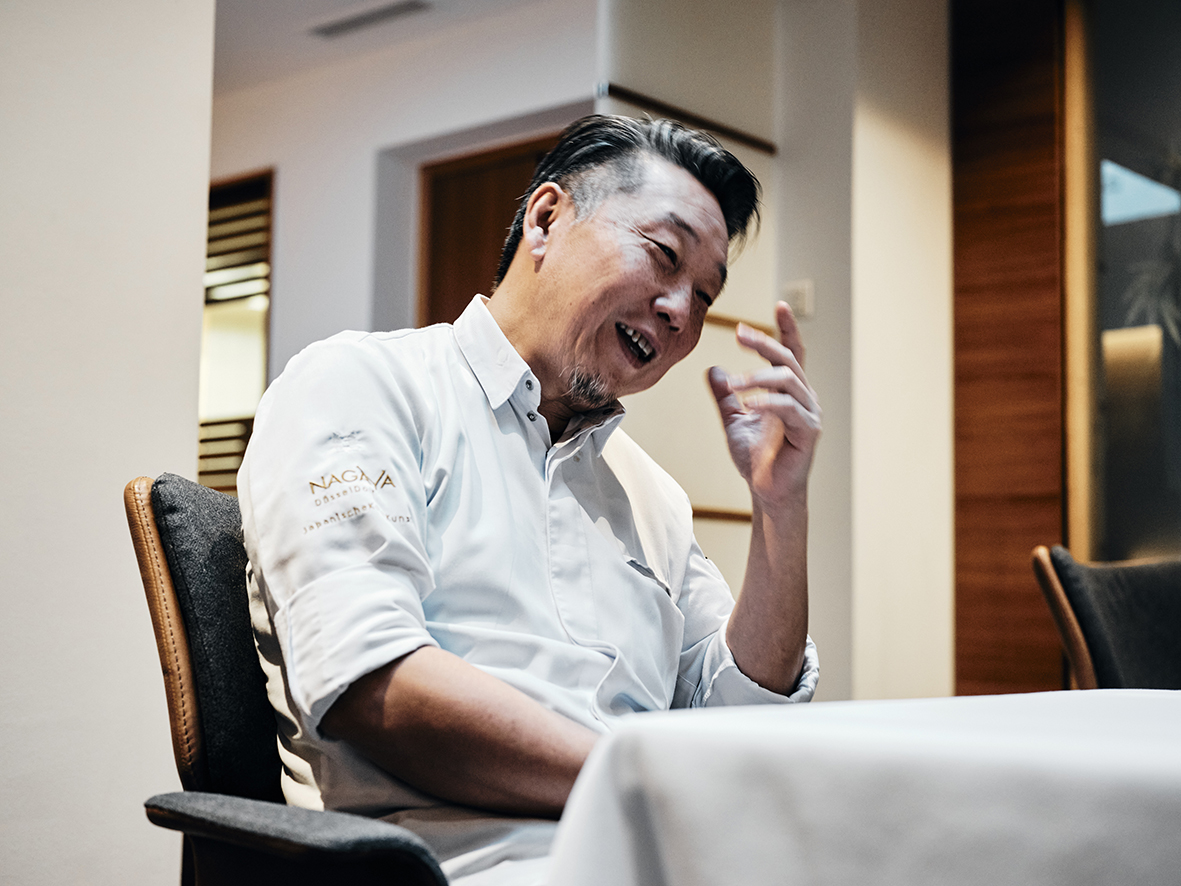
You've been in Düsseldorf's hospitality industry since 2003, so for almost 20 years. How has the city changed since then?
Actually, not that much has changed. There are still a large number of gourmet restaurants here.
What inspires you? Where do you get your ideas from?
I usually find new ideas on the internet. That's where I see what's fashionable internationally, what people are eating in Tokyo and New York. Unfortunately, I don't have much time to travel.

Sushi, sake & Japanese lifestyle
Little Tokyo in Düsseldorf is unique in Germany. On our city tour, we'll show you where to find the best sake, the best sushi and cool mangas. You can find more information here.
Where do you go when you want to switch off?
I like the Hofgarten and sometimes go to the Rhine or the Japanese garden in Niederkassel. I'm also interested in the Japanese garden in Nordpark, but I haven't visited it yet. I haven't gotten around to it yet.
What is your favorite place in Little Tokyo?
The Takeichi ramen restaurant, where you really feel like you're in Japan. But I also like being at home. I live just around the corner.
Do you sometimes feel homesick for Japan?
My sister still lives in Japan. But visits are also a must in order to keep up to date with Japanese food trends. In the meantime, however, I feel that Düsseldorf is my home. Every time I return, I am delighted to be greeted by the Rhine Tower. To be honest, I also look forward to seeing signs for Düsseldorf on the highway.
Interview: Ilona Marx
Photos: Markus Luigs
Info:1) Kaseiki is the haute cuisine of classic Japanese cuisine. The menus consist of many small courses that are artfully arranged. Kaseiki cuisine is a kind of culinary expression of Japanese culture.
(Updated version of the interview from 01/2023.)

